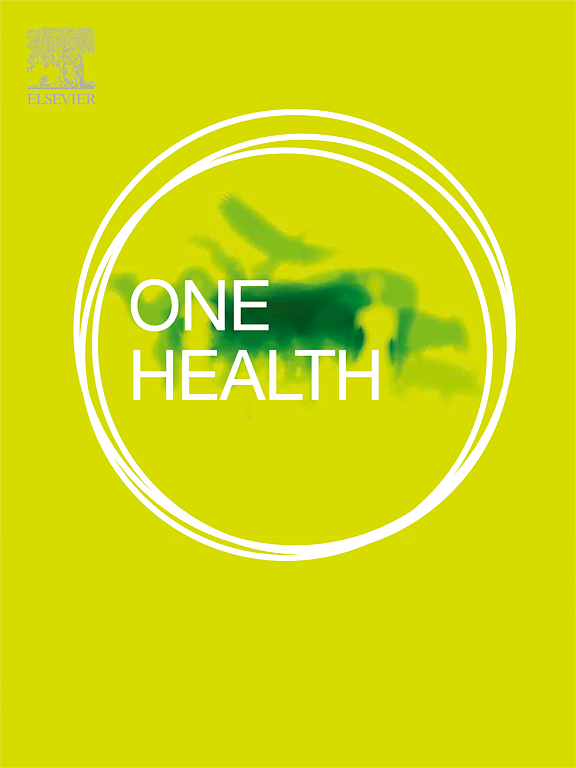加强撒哈拉以南非洲的全球卫生安全:针对人畜共患疾病和环境威胁的一体化卫生监测的案例
IF 4.1
2区 医学
Q1 INFECTIOUS DISEASES
引用次数: 0
摘要
一体化卫生监测对非洲未来的卫生安全至关重要,特别是在预防和管理人畜共患疾病和环境卫生威胁方面。“同一个健康”战略认识到人类、动物和环境卫生之间的相互联系,为跟踪和应对新出现和再出现的病原体提供了一个整体框架。“同一个健康”方法促进跨部门数据共享并加强监测,从而能够及早发现和应对潜在的疫情。这种积极主动的做法将危机管理模式从反应性危机管理转变为预防性遏制战略。然而,资金缺口、基础设施有限、诊断能力有限以及多部门和跨境合作薄弱等挑战依然存在。本文旨在:1)探索一体化健康监测在撒哈拉以南非洲(SSA)早期发现和应对人畜共患疾病和环境威胁方面的有效性;2)确定关键挑战并提出解决方案,以加强区域卫生安全。一个多部门实验室工作组(MLWG)作为支柱出现,以实现针对人类、动物和环境的主动监测。鉴于卢旺达最近发生的马尔堡病毒病,本文强调了在南非洲加强“一个健康”监测的基本战略。它强调通过动物排泄物和废水监测进行环境采样,以便及早发现人畜共患疾病,倡导建立即时聚合酶链反应(PCR)检测平台,并采用多重模式改善分散诊断。由于48%的非洲国家将“同一个健康”纳入国家议程,因此需要一个统一的大陆框架来支持更广泛的采用和促进区域卫生安全。本文章由计算机程序翻译,如有差异,请以英文原文为准。
Enhancing Global Health Security in Sub-Saharan Africa: The case for integrated One Health surveillance against zoonotic diseases and environmental threats
Integrated One Health surveillance is pivotal to Africa's future health security, particularly in preventing and managing zoonotic and environmental health threats. The One Health strategy recognizes the interconnectedness of human, animal, and environmental health, allowing a holistic framework for tracking and responding to emerging and re-emerging pathogens. The One Health approach facilitates cross-sectoral data sharing and enhances surveillance, enabling the early detection and response to potential outbreaks. This proactive approach shifts the paradigm from reactive crisis management to preventive containment strategies. However, challenges such as funding gaps, limited infrastructure, limited diagnostic capacity, and weak multi-sectoral and cross-border collaborations remain. This perspective paper aims to 1) explore the effectiveness of integrated One Health surveillance in early detection and response to zoonotic diseases and environmental threats in Sub-Saharan Africa (SSA), and 2) identify key challenges and proposed solutions to strengthen regional health security. A multisectoral laboratory working group (MLWG) emerged as a pillar to enable active surveillance targeting humans, animals, and the environment. This paper highlighted essential strategies for enhancing One Health surveillance in SSA in light of the recent Marburg virus disease in Rwanda. It emphasizes environmental sampling through animal excreta and wastewater surveillance for early zoonotic detection, advocates for point-of-care polymerase chain reaction (PCR) testing platforms, and multiplex models to improve decentralized diagnostics. With 48 % of African nations incorporating One Health in national agendas, a unified continental framework is needed to support broader adoption and advance regional health security.
求助全文
通过发布文献求助,成功后即可免费获取论文全文。
去求助
来源期刊

One Health
Medicine-Infectious Diseases
CiteScore
8.10
自引率
4.00%
发文量
95
审稿时长
18 weeks
期刊介绍:
One Health - a Gold Open Access journal.
The mission of One Health is to provide a platform for rapid communication of high quality scientific knowledge on inter- and intra-species pathogen transmission, bringing together leading experts in virology, bacteriology, parasitology, mycology, vectors and vector-borne diseases, tropical health, veterinary sciences, pathology, immunology, food safety, mathematical modelling, epidemiology, public health research and emergency preparedness. As a Gold Open Access journal, a fee is payable on acceptance of the paper. Please see the Guide for Authors for more information.
Submissions to the following categories are welcome:
Virology,
Bacteriology,
Parasitology,
Mycology,
Vectors and vector-borne diseases,
Co-infections and co-morbidities,
Disease spatial surveillance,
Modelling,
Tropical Health,
Discovery,
Ecosystem Health,
Public Health.
 求助内容:
求助内容: 应助结果提醒方式:
应助结果提醒方式:


